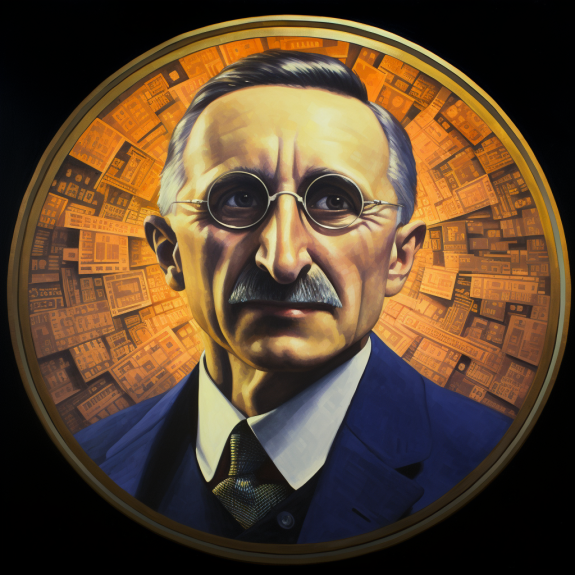Robert Jay Lifton’s ‘Thought Reform and the Psychology of Totalism: A Study of “Brainwashing” in China’ was published in 1961. In it, Lifton identified features common to expressions of ideological totalism: 1) Milieu control 2) Mystical manipulation 3) The demand for purity 4) The cult of confession 5) The “sacred science” 6) Loading the language 7) Doctrine over person 8) The dispensing of existence.
Milieu Control
“The most basic feature of the thought reform environment, the psychological current upon which all else depends, is the control of human communication. Through this milieu control the totalist environment seeks to establish domain over not only the individual’s communication with the outside (all that he sees and hears, reads and writes, experiences, and expresses), but also—in its penetration of his inner life—over what we may speak of as his communication with himself.”
Mystical Manipulation
“The inevitable next step after milieu control is extensive personal manipulation. This manipulation assumes a no-holds-barred character, and uses every possible device at the milieu’s command, no matter how bizarre or painful. Initiated from above, it seeks to provoke specific patterns of behavior and emotion in such a way that these will appear to have arisen spontaneously from within the environment.”
…
“Similarly, any thought or action which questions the higher purpose is considered to be stimulated by a lower purpose, to be backward, selfish, and petty in the face of the great, overriding mission.”
…
“When trust gives way to mistrust (or when trust has never existed) the higher purpose cannot serve as adequate emotional sustenance. The individual then responds to the manipulations through developing what I shall call the psychology of the pawn. Feeling himself unable to escape from forces more powerful than himself, he subordinates everything to adapting himself to them. He becomes sensitive to all kinds of cues, expert at anticipating environmental pressures, and skillful in riding them in such a way that his psychological energies merge with the tide rather than turn painfully against himself.”
The Demand for Purity
“In the thought reform milieu, as in all situations of ideological totalism, the experiential world is sharply divided into the pure and the impure, into the absolutely good and the absolutely evil. The good and the pure are of course those ideas, feelings, and actions which are consistent with the totalist ideology and policy; anything else is apt to be relegated to the bad and the impure. Nothing human is immune from the flood of stern moral judgments. All “taints” and “poisons” which contribute to the existing state of impurity must be searched out and eliminated.
“The philosophical assumption underlying this demand is that absolute purity is attainable, and that anything done to anyone in the name of this purity is ultimately moral.”
…
“Since ideological totalists become the ultimate judges of good and evil within their world, they are able to use these universal tendencies toward guilt and shame as emotional levers for their controlling and manipulative influences.”
The Cult of Confession
“Closely related to the demand for absolute purity is an obsession with personal confession. … There is the demand that one confess to crimes one has not committed, to sinfulness that is artificially induced, in the name of a cure that is arbitrarily imposed. Such demands are made possible not only by the ubiquitous human tendencies toward guilt and shame but also by the need to give expression to these tendencies. In totalist hands, confession becomes a means of exploiting, rather than offering solace for, these vulnerabilities.”
“If someone is kept confessing, you can achieve control over his or her guilt and shame mechanisms, and there’s no greater control one can achieve over another human being.” – Robert Jay Lifton

The “Sacred Science”
“The totalist milieu maintains an aura of sacredness around its basic dogma, holding it out as an ultimate moral vision for the ordering of human existence. This sacredness is evident in the prohibition (whether or not explicit) against the questioning of basic assumptions, and in the reverence which is demanded for the originators of the Word, the present bearers of the Word, and the Word itself.”
Loading the Language
“The language of the totalist environment is characterized by the thought-terminating cliche. The most far-reaching and complex of human problems are compressed into brief, highly reductive, definitive-sounding phrases, easily memorized and easily expressed. These become the start and finish of any ideological analysis.“


Doctrine Over Person
“This sterile language reflects another characteristic feature of ideological totalism: the subordination of human experience to the claims of doctrine.”
The Dispensing of Existence
“The totalist environment draws a sharp line between those whose right to existence can be recognized, and those who possess no such right.”
YouTube: Robert J Lifton – Speaks about Thought Reform Methods
In this YouTube video, Lifton identifies psychohistorical themes behind many cultish formations: psychohistorical dislocation, media revolution, and threat of extinction.
“by psychohistorical dislocation I really mean a loss of intimate contact and fluid response to the fundamental symbol systems that in the past guided lives.”
“We require a sense of belonging to groups, ideas, processes that are larger than ourselves. And we therefor achieve the symbolized sense of immortality in different modes: through family – the sense of being part of an endless family line; through some religious principle which we see as larger than ourselves; through our works or creative mode; through our attachment to eternal nature; through the direct psychological experience of transcendence – the classical mode of the mystics. … With nuclear threat, and the fear which is in all of us at some level of total annihilation of humankind, we have inner doubts about these modes being viable. And that contributes to our increasing hunger for transcendence – often expressed through drugs or through some cults.”



